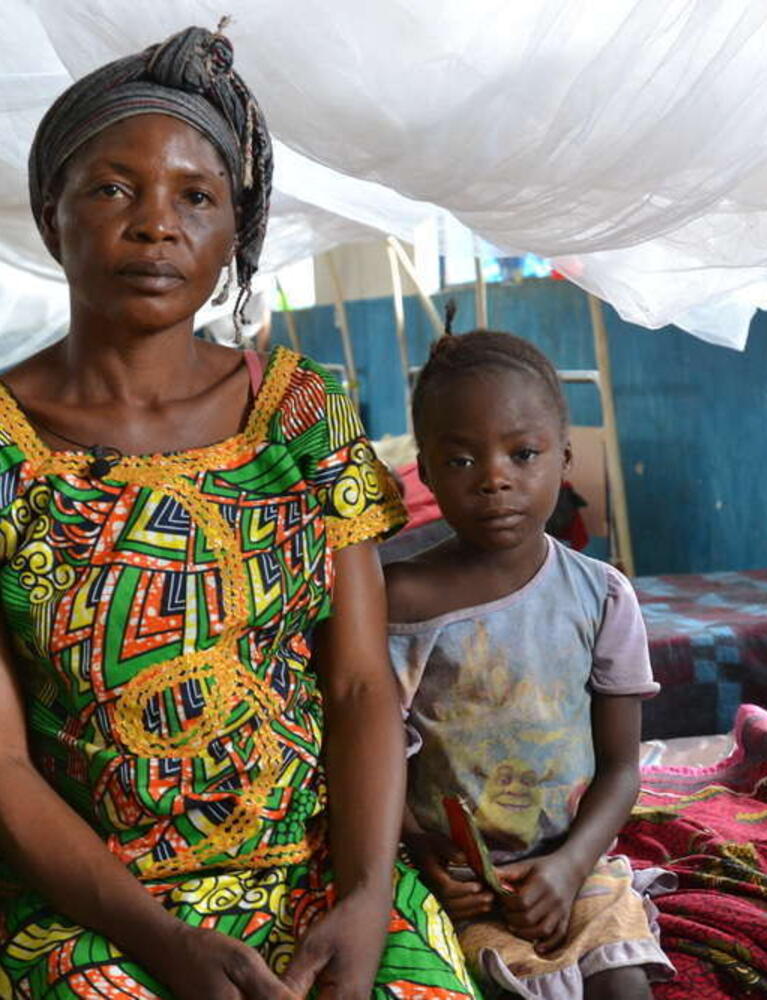Ana Maria Tijerino, MSF psychologist and mental health advisor, has extensive experience caring for survivors of violence. But the atrocities happening in the gold and diamond-mining region of Ituri, in eastern Democratic Republic of Congo (DRC), left her shocked and appalled.
“Violent attacks have been happening in the area around Nia Nia, in eastern DRC’s Orientale province, since April, related to the mining of gold and diamonds.
Different groups of armed poachers have been trying to profit from the illegal economy around the mines in the Okapi wildlife reserve for decades, but we are currently facing a peak of violence that is absolutely exceptional.
‘A living hell’
I was extremely shocked by what people told me; they describe what they have lived through as hell. I thought I had heard everything about what people can suffer.
I have trouble believing that such a level of horror is possible. It’s as if the perpetrators were on a mission to destroy, degrade, humiliate and dehumanise.
Some of the victims were held as sex slaves – sometimes for months – and sexually assaulted violently by several men, several times a day, often in front of their parents, husbands or relatives.
Women are not the only victims; I also met young children and men who had been sexually assaulted.
Abuse affects everyone
It’s not only sexual violence, but other types of violence too. Everyone who works in the mines has experienced a certain level of abuse. It’s rare to find people who have not been exposed to extreme violence directed against themselves or against others.
The workers in the mines who have built camps in the heart of the forest have fled to nearby towns like Nia Nia in fear of more attacks, or to seek help after being victims of attacks.
Nia Nia’s economy is almost entirely dependent on the gold and diamond trade; everything else is imported, including water and food.
It’s a poor place with few jobs or income-generating activities. So the price they pay is the loss of their livelihood.
Welcoming community
The displaced people are hardly visible in town, although they now make up nearly a quarter of the population. They haven’t built themselves temporary shelters; instead they are being hosted by relatives, acquaintances or strangers who have opened their doors to them. The situation is fluid.
Every other week people flee the violence anew and arrive in Nia Nia, while others have left the town again. In order to maintain their bare living they return to the mines.
The victims haven’t been stigmatised by the community in Nia Nia – quite the contrary: they are welcomed, supported and listened to. I was very impressed by the resilience of the people, and by these mechanisms that the community has put in place.
Mental health needs
When MSF arrived in Nia Nia, the team began providing free-of-charge primary healthcare. They also immediately identified the mental health needs, so set up psychological support services.
Since then, many people have come to our centre, usually accompanied by other survivors of violence or by neighbours.
Survivors of violence, and especially of sexual violence, now have access to psychological counselling and specialised care. Unfortunately the nature of the sexual violence makes providing care for the survivors more difficult.
Post-exposure prophylaxis, which protects against HIV, sexually transmitted infections and pregnancy, is only fully effective if it is administered within 72 hours of an assault. So women who have been held as sex slaves for months are deprived of such essential care.
Long term trauma
Months after being assaulted, the physical and psychological trauma is still visible in the survivors. Many suffer from pain, infected wounds, stress, depression and nightmares.
No one knows what tomorrow will bring, and survivors have an ongoing sense of living in insecurity, which contributes to their stress.
Shocked and appalled
The whole team is shocked and appalled by the atrocities that people have experienced. I believe we have a duty to speak out about what is happening right now around Nia Nia – we have a duty to break the silence to help the population.
Although violence and sexual violence are nothing new in DRC, for the victims, these atrocities are not normal. No one should have to accept violence on this level.”






